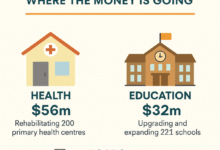Fertiliser soaring cost: South East farmers resort to use of dungs
 Some farmers in the South East have decried the high cost of fertiliser in the country saying they have resorted to other sources of manure for their crops.
Some farmers in the South East have decried the high cost of fertiliser in the country saying they have resorted to other sources of manure for their crops.
The farmers expressed their dismay in a News Agency of Nigeria (NAN) survey on the rising cost of fertiliser and its effects on farm produce in the country.
In Enugu State, the Chairman, All Farmers Association of Nigeria (AFAN), Mr. Romanus Eze, says many farmers in the state have resorted to the use of dungs as a means of fertilizing their crops.
NAN reports that a 50kg bag of NPK 15-15-15 sells at N30, 000 while 50kg bag of Urea sells at N22, 000.
The AFAN chairman said that majority of the farmers in the state were unable to procure fertilisers in the 2022 farming season, a situation he said, affected crop yield in the area.
He said that the prevailing circumstance could affect government’s food security programme.
Eze said that farmers in the state relied on the open market for their fertiliser needs as there was no such arrangements by the state government.
“The cost of fertiliser is well beyond what a peasant can afford and this has greatly affected crop yield this year.
“There are no arrangements for fertilizer distribution by any tier of government to farmers in the state and this made our farmers to rely on the open market at exorbitant prices,” he said.
According to him, a hectare of land consumes four bags of fertilizer which is beyond the reach of an average farmer.
Eze said that the farmers were forced to rely on alternatives such as animal droppings or waste.
He appealed to the government to come up with functional fertiliser plants in order to ameliorate the difficult situation the farmers were faced with.
Also, a farmer, Mrs Ifeoma Nwachukwu, said that the high cost of fertiliser affected her crop.
Nwachukwu, a maize and cassava farmer, said that the 2022 farming season had been the worst in her life time in terms of crop yield.
“My crops, especially, maize, did so badly this year because I had no money to purchase fertilizer.
“It also affected most farmers and that is why corn is very expensive this year,” Nwachukwu said.
Another farmer, Mr Nwede Ukandu, said that he resorted to the use of liquid fertilizer which he bought at N4,000 in less than one liter bottle.
In Imo, the state Commissioner for Agriculture, Dr Berth Okorochukwu said his ministry had written a proposal to the state governor for the approval of 100,000 bags of NPK fertiliser for farmers in the state.
Okorochukwu, who spoke through the Permanent Secretary in the ministry, Mrs Nonye Edomobi, said an initial proposal for 200,000 bags was made but was reduced to the current figure due to the increase in price of fertiliser.
He said the state government last distributed fertilisers to farmers two years ago.
While noting that the state presently does not have a fertiliser blending plant, he admitted that the delay in the distribution of fertilisers to farmers could further result in food shortage.
“In this part of the country, we depend on rainfall for agricultural production. Timing in providing inputs is necessary but unfortunately, one cannot do anything because it involves huge amount of money.
“Our governor is farmer friendly and we know he will do something soonest,” the commissioner said.
He said when approved, the fertilisers will be subsidized at 20 per cent price reduction to farmers, which still depends on the state governor.
He further disclosed that the ministry was planning an enumeration of farmers in the state, noting that it was still operating on the previous data of 333, 000 registered farmer groups.
“At the moment, we are conducting enlightenment campaigns to let all farmers in the state know that all hands must be on deck to overcome the problem of food shortage in the country.
“We have scaled up our extension services to farmers and presently, encouraging people to go into bag planting even at the corridor of their houses like vegetables, yam and other crops,” he added.
A farmer and Managing Director of ND Farms, Mr Ndubuisi Orie, said he had resorted to poultry manure in his farm as a result of the price increase of fertiliser.
Ndubuisi, who cultivates cassava, yam, pepper, cucumber, cocoyam, maize and economic trees, said he had never received fertiliser from the state government.
“I will be happy, if the state government provides me with fertiliser.
“Although, I don’t use fertiliser much, I used to access it from the open market. The last one I bought some months ago was N10, 000,” he said.
Also speaking, the state Chairman of AFAN, Dr Ayo Enwerem, described the fertiliser situation in the state as “chaotic”.
“We are just buying at any amount in the market and we are not getting the real stuff.
“We buy up to N15,000 per bag, but that is not the problem. The problem is that the ones we buy are not the real stuff,” he said.
He called on the state and Federal Governments to come to the rescue of farmers in the state in the area of inputs, agro chemicals, seeds and grants.
In Abia, some farmers have expressed concern over the soaring price of fertiliser, which currently revolves around N24,000 per bag.
They feared that the development would lead to food shortage in the country, if urgent steps were not taken to reverse the trend.
Speaking in separate interviews with NAN, they called on the Federal and State Governments to subsidise the commodity to make it affordable to average farmer in the country.
Mrs Goodness Nzeadibe, a farmer, said she had poor yield in 2021 because she could not afford to buy enough fertiliser for her farm.
Nzeadibe said that she bought a bag of fertiliser at N24,000 recently.
She expressed worry that the exhorbitant price of the commodity would hinder bumper harvest this year.
“The little quantity of fertiliser I bought last year due to the high cost of fertiliser did not give the desired yield.
“I believe this is the experience of most farmers, who cannot afford to buy enough fertiliser at the current price.
“Unfortunately, it is difficult to enhance product yield without using fertiliser.
“Federal Government should look into this matter and subsidise fertiliser to enable the average farmer to buy the quantity they need for their crops,” Nzeadibe said.
Also, Mr Rufus James said that the current cost of fertiliser posed serious threat to achieving food sufficiency in the country and called for government’s immediate intervention.
James said that many farmers were finding it increasingly difficult to buy the quantity of fertiliser they required.
Mr Geoffrey Nwobilor said that because of the exhorbitant cost of fertiliser, he had resorted to using animal droppings as manure in his farm.
According to him, the droppings have become an alternative for many farmers in Abia, who cannot afford the current price of fertiliser.
Nwobilor said that the sudden rise in the demand for droppings had resulted in its scarcity and price increase.
“It is now difficult to get enough quantity of droppings from my supplier,” he said.
The respondents therefore appealed to the Federal Government to evolve policies and programmes that would give farmers access to incentives to boost productivity.
It is a similar situation in Ebonyi as agricultural experts in the state have revealed that continual Increase in price of fertilisers and other farm inputs, would lower food productivity.
The experts said that cost effect of the product was being transfered to farm produce gradually.
Mr Hygnus Agbo, a farmer, said that both commercial and domestic farmers, needed fertiliser to grow their crops, especially on lands that were not productive as they need more to make it productive.
“Food shortage may occur, if the surge is not checked,” Agbo advised.
Another farmer, Mrs Virginia Nwali, said implications of increase in high cost of fertiliser would also affect farmers and communities.
According to Nwali, if the trend is extended, estimated number of undernourished people will also increase.
Another Agric Expert, Mr Alibeze Uzor, explained that the supply disruptions, affordability and availability to farmers had been amplified by the war in Ukraine.
Uzor said the risk of this was that prices were anticipated to remain high, until supply returns to international markets from Russia and Belarus.
“Fertiliser prices rise in response to the war in Ukraine, reflecting the impact of economic sanctions and disruptions.
“And continual Increase in prices of fertiliser will lower food productivity if the affliction is not checked,”Uzor said.
READ ALSO:https://brandeconomy.com.ng/before-you-bleach-that-skin/
Meanwhile, Mr Ejike Aluobu, a farmer, said that the soaring prices of fertiliser were driven by surge input costs and supply disruptions.
Aluobu described the trend of increase in prices of fertiliser as “plague” on farm produce and farmers.
Mr Ezekiel Igboji, State Coordinator, Organic Association of Nigeria, Ebonyi branch, called for appropriate authorities in charge, to identify real farmers for proper distribution when federal government supplies fertiliser.
Igboji alleged that the products were mostly distributed to wrong people who were not farmers because of preference interest.
On the prices of fertiliser, Mr Daniel Okafor, fertiliser dealer and seedlings at New Market, said that prices of 50 kilogram of fertiliser was sold between N20, 000 and N30 000, depending on the brand.
“NPK fertiliser (golden and gold) 20:10:10, are sold between N25, 000 and N28, 000 per 50kg bag.
“While NPK 27:13:13 fertiliser is sold at N30, 000 per 50kg and Urea fertiliser N20, 000 per 50kg but previously was sold between N11, 000 and N20, 000.
(NAN)











